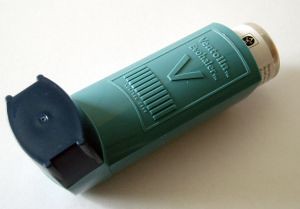The fall increase may be caused by respiratory infections, increased pollen, and outdoor mold counts. Children going back to school also have more contact with other children in an indoor environment, possibly increasing their exposure to viral and bacterial respiratory infections which can lead to an asthma episode.
"Parents and guardians can prepare for this possible increase in asthma episodes by scheduling a 'well-asthma' visit with the child's asthma provider," said Harold Wimmer, CEO of the American Lung Association of the Upper Midwest. "At this visit, health care providers should review or develop an Asthma Action Plan for the child."
According to the Lung Association, parents and guardians should:
1. Obtain an up-do-date Asthma Action Plan from the health care provider and forward copies to the school health office and/or childcare provider.
2. Ensure the child has rescue medications (often called albuterol) and holding chambers (also called spacers) available at home and school/childcare. Make sure rescue medication inhalers are not outdated or empty.
3. Ensure the child has access to his/her asthma medications and knows how to use them.
4. Reduce exposure to things that could trigger an asthma attack such as allergens and secondhand smoke.
5. Schedule an influenza vaccine appointment when the vaccine is available.
6. Teach children to wash their hands frequently with soap and water both at home and school.
Children whose asthma is well-controlled can participate in all activities just like anyone else, including sports, gym and other aerobic type activities by following an Asthma Action Plan and providers' instructions.
Signs that a child's asthma is well controlled include:
· Ability to participate in all physical activities without developing asthma symptoms. Sleeping through the night without episodes of coughing and wheezing.
· No missed school days due to asthma or other respiratory illnesses.
· No emergency room, urgent care or unscheduled provider office visits.
If your child is having symptoms or asthma episodes, the American Lung Association of the Upper Midwest advises parents and caregivers to schedule an appointment with the child's health care provider as soon as possible to resolve these issues.
Registered nurses and respiratory therapists can also answer your questions about asthma and other lung diseases free of charge: contact 1-800-LUNG-USA for more details.

No comments:
Post a Comment